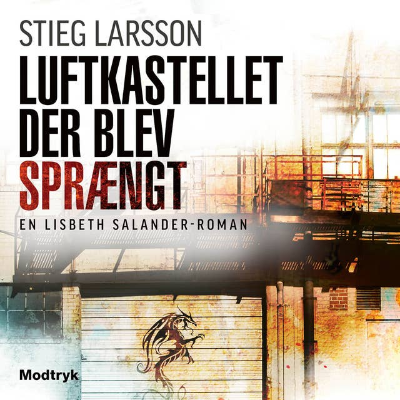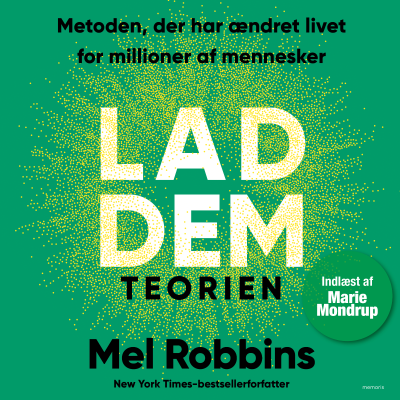
Sermons from St. Andrew's ~ Mt. Pleasant
engelsk
Historie & religion
Begrænset tilbud
1 måned kun 9 kr.
Derefter 99 kr. / månedOpsig når som helst.
- 20 lydbogstimer pr. måned
- Podcasts kun på Podimo
- Gratis podcasts
Læs mere Sermons from St. Andrew's ~ Mt. Pleasant
Sermons from St. Andrew's Church in Mt Pleasant, South Carolina. St. Andrew's ~ Mt. Pleasant is the home church of The Most Rev'd Stephen D. Wood, Archbishop and Primate of the Anglican Church in North America.
Alle episoder
574 episoderRandy Forrester: John the Baptist and Doubt
Bible Study Don't just take our word for it . . . take His! We would encourage you to spend time examining the following Scriptures that shaped this sermon: . Sermon Notes: 1. Why Did John Doubt? * John is imprisoned after confronting Herod. * From prison he hears Jesus’ ministry reports. * Jesus is not matching his expectations: * John expected judgment (axe, winnowing fork). * Jesus is healing, teaching mercy, loving enemies. * Doubt often grows when God doesn’t meet our expectations. * We risk: * Disbelief (walking away), or * Idolatry (reshaping God into our image). 2. What Did John Do With His Doubt? * He brought his question directly to Jesus. * The Psalms model honest questioning (“How long, Lord?”). * Honest questions brought to God are themselves an act of faith. * We bring our doubts to: * Prayer, * Scripture, * Community (church, classes, Alpha). 3. How Did Jesus Respond? * Jesus doesn’t condemn John. * He points to evidence: “What you see and hear”—lives changed, people healed, good news preached. * He points John back to Scripture (Isaiah). * Jesus gently corrects John’s expectations and strengthens his faith. * God often strengthens us by showing us His work in others’ lives. Conclusion * The final answer to our doubt is not an argument—but a person: Jesus. Discussion Questions: 1. Is it surprising to you that great saints sometimes experience great doubt and discouragement? 2. Can you think of a time when God didn't meet your expectations? 3. Why is bringing our doubts to God itself an act of faith? 4. What are the two things Jesus does in response to John's question? How might those also help us in times of doubt or discouragement? 5. Do our doubts separate us from Jesus? Questions? Do you have a question about today’s sermon? Email Randy Forrester ( ).
Sam Fornecker:: They Shall Not Hurt or Destroy
Bible Study Don't just take our word for it . . . take His! We would encourage you to spend time examining the following Scriptures that shaped this sermon: Isaiah 11:1-10,Matthew 3:1-12 [https://www.biblegateway.com/passage/?search=Isaiah%2011%3A1-10%2CMatthew%203%3A1-12&version=ESV]. 1. Where do you experience peace, and the lack of it, in your life? 2. How does Christianity both satisfy and undermine exclusively human aspirations for the good life? (Don't take too long on this.) 3. What does it mean for the Christian life — personally and communally — to be anchored in and oriented toward Eden? 4. With whom do you need to make peace? [What appropriate steps can your life group take to support you in seeking peace?] * Commentators: Aquinas [https://aquinas.cc/la/en/~Isaiah.C11], Calvin [https://www.ccel.org/ccel/calvin/calcom13/calcom13.xviii.html], Goldingay (Theology of Isaiah) * James Davison Hunter, Democracy and Solidarity: On the Cultural Roots of America's Political Crisis * Richard Crashaw, "In the Holy Nativity of Our Lord God," from Carmen Deo Nostro [https://archive.org/details/carmendeonostro00crasuoft/page/n41/mode/2up] Do you have a question about today's sermon? Email Sam Fornecker (SFornecker@StAndrews.Church [SFornecker@StAndrews.Church]). Sermon QuestionsResources ConsultedQuestions?
John Burley:: Advent Awaken the Soul for Christmas
Bible Study Don't just take our word for it . . . take His! We would encourage you to spend time examining the following Scriptures that shaped this sermon: Sermon Outline God's gift is the gift that keeps on giving far beyond Christmas. Advent is not about the past; it's about the future. It's all about the hope that shines in the darkness. When Jesus comes on that day to be glorified in his saints, and to be marveled at among all who have believed." 2 Thessalonians 1:10Four Things to awaken the soul for Christmas and make us marvel. 1. The eternal God - God is and always wasExodus 3:14 2. The Creator Visits - the eternal Creator entered His creation as the God-man Jesus Christ.John 1:11 3. The Savior comes to give His life as a Ransom - Why He came to His creation.Mark 10:45 4. The Giver of the Gift - The Right to become the children of God.John 1:12 Sermon Questions 1. How can John 1:1-18 apply to both Advent and Christmas, to both the Incarnation and the Second Coming? 2. How can both the immensity of God and the minuscule presence of God help us in the challenges in our lives? 3. What happens when you both receive Jesus and believe in Jesus? 4. What would be the "rights" that would be granted as a child of God to those who receive and believe? Questions? Do you have a question about today's sermon? Email John Burley ( ). .
Test sermon
BIBLE STUDY Don't just take our word for it . . . take His! We would encourage you to spend time examining the following Scriptures that shaped this sermon: Exodus 15:1-21, John 4:21-26, Galatians 2:20, 2 Chronicles 20:20-21. [https://www.biblegateway.com/passage/?search=Exodus%2015%3A1-21%2C%20John%204%3A21-26%2C%20Galatians%202%3A20%2C%202%20Chronicles%2020%3A20-21&version=ESV] SERMON NOTES: 1. WORSHIP IS HISTORICAL * Exodus 15:1 — Israel sings about God’s real rescue at the Red Sea. * Christian worship responds to God’s real acts—especially the Cross and Resurrection. * Without real saving events, worship has no foundation. ---------------------------------------- 2. WORSHIP IS PERSONAL * Exodus 15:2 — “The LORD is my strength… my salvation.” * Salvation must be personally received. * Personal worship fuels corporate worship. * In seasons of grief or shame, others can “hold” our worship for us. ---------------------------------------- 3. WORSHIP IS DECLARATIVE * Exodus 15:11 — declaring who God is: holy, majestic, powerful. * Declaring truth reorients our hearts, deepens our joy, and functions as spiritual warfare (2 Chronicles 20). ---------------------------------------- 4. WORSHIP IS BEAUTIFUL * Exodus 15 is a song—with poetry, rhythm, and movement. * God uses beauty, music, and art to reach deep places in us. * Worship leaders help communicate God’s beauty, not perform. ---------------------------------------- CONCLUSION * Worship is historical, personal, declarative, and beautiful. * Worship steadies us when life spins around us. * It trains us for our eternal vocation: worshiping the Lord in Spirit and truth. DISCUSSION QUESTIONS: 1. If you don't believe all the stories in the Bible, can you still worship God? 2. Is quiet meditation or practicing mindfulness a form of worship? Why or why not? 3. Does it matter that we worship corporately? Is private personal worship just as good? 4. Can we still worship if we feel spiritually dry? What is the place of the emotions in worship? 5. Can you share about a time when "personal pain robbed your perspective but worship restored it"? QUESTIONS? Do you have a question about today’s sermon? Email Randy Forrester (RForrester@StAndrews.Church [RForrester@StAndrews.Church]).
Randy Forrester :: Exodus: The Power of Worship to Reorient
Bible Study Don't just take our word for it . . . take His! We would encourage you to spend time examining the following Scriptures that shaped this sermon: Sermon Notes: 1. Worship Is Historical * Exodus 15:1 — Israel sings about God’s real rescue at the Red Sea. * Christian worship responds to God’s real acts—especially the Cross and Resurrection. * Without real saving events, worship has no foundation. 2. Worship Is Personal * Exodus 15:2 — “The LORD is my strength… my salvation.” * Salvation must be personally received. * Personal worship fuels corporate worship. * In seasons of grief or shame, others can “hold” our worship for us. 3. Worship Is Declarative * Exodus 15:11 — declaring who God is: holy, majestic, powerful. * Declaring truth reorients our hearts, deepens our joy, and functions as spiritual warfare (2 Chronicles 20). 4. Worship Is Beautiful * Exodus 15 is a song—with poetry, rhythm, and movement. * God uses beauty, music, and art to reach deep places in us. * Worship leaders help communicate God’s beauty, not perform. Conclusion * Worship is historical, personal, declarative, and beautiful. * Worship steadies us when life spins around us. * It trains us for our eternal vocation: worshiping the Lord in Spirit and truth. Discussion Questions: 1. If you don't believe all the stories in the Bible, can you still worship God? 2. Is quiet meditation or practicing mindfulness a form of worship? Why or why not? 3. Does it matter that we worship corporately? Is private personal worship just as good? 4. Can we still worship if we feel spiritually dry? What is the place of the emotions in worship? 5. Can you share about a time when "personal pain robbed your perspective but worship restored it"? Questions? Do you have a question about today’s sermon? Email Randy Forrester ( ).
Vælg dit abonnement
Begrænset tilbud
Premium
20 timers lydbøger
Podcasts kun på Podimo
Gratis podcasts
Opsig når som helst
1 måned kun 9 kr.
Derefter 99 kr. / måned
Premium Plus
100 timers lydbøger
Podcasts kun på Podimo
Gratis podcasts
Opsig når som helst
Prøv gratis i 7 dage
Derefter 129 kr. / month
1 måned kun 9 kr. Derefter 99 kr. / måned. Opsig når som helst.

































